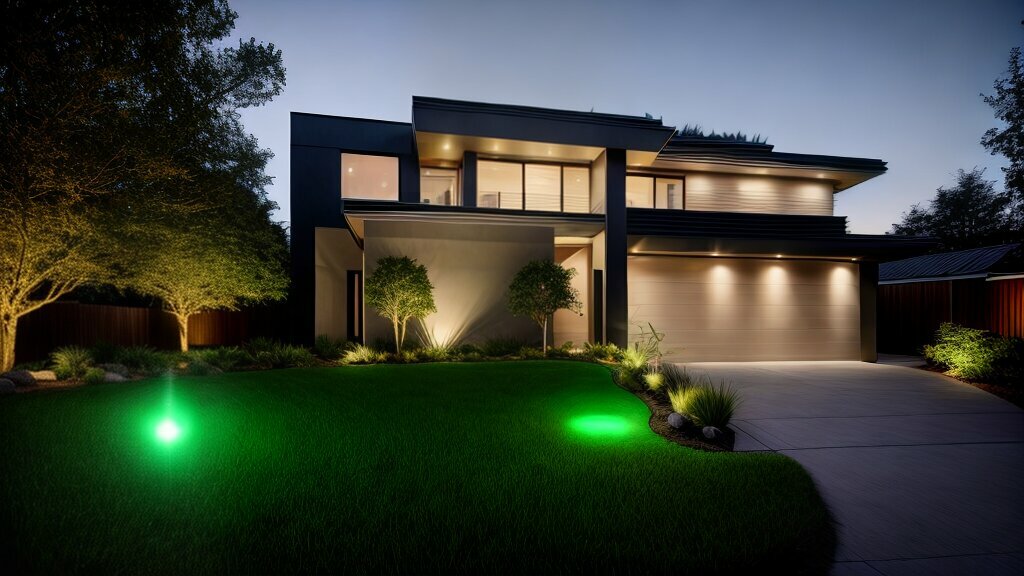Eco-Friendly Radiator Outputs : How to Net Zero Home

As the UK works towards its legally binding net zero emissions target by 2050, finding sustainable heating solutions is crucial. Even small components like radiator outlets play an important role in responsible home energy usage and reducing carbon footprints. This guide covers choosing the most environmentally friendly and efficient radiator valves and outputs for residential settings.
How Radiator Outputs Impact Emissions
- Outlets control heat flow from radiators into living spaces. Efficient thermostatic valves prevent wasting excess warmth.
- Smart programmable valves release only necessary heat to reach target temperatures. This lowers fuel use and emissions.
- Modern connected valves facilitate zone control – selectively heating occupied areas when needed.

Top Eco-Friendly Smart Radiator Valves
1. Netatmo Smart Thermostatic Valves
Netatmo’s smart valves allow room-by-room heating control via a smartphone app. Set schedules, target temperatures, and monitor usage. Units self-regulate system parameters based on demand.
- Key Features: Granular zone control, open window detection, wireless functionality, self-powering.
- Cost: £179 for set of 3. £59 per additional valve.
2. Warm Controls Zigbee Thermostatic Valves
These wireless battery-powered smart valves enable remote heating management through a mobile app. Units learn household usage patterns over time to self-optimize efficiency.
- Key Features: App-based scheduling, adaptive optimization, simple retrofit installation.
- Cost: £55 per valve. Requires Zigbee hub.
3. Drayton MiGenie Valves
Drayton’s smart valves integrate with their Wiser home energy control ecosystem, enabling heating/hot water management from a central hub or app.
- Key Features: Remote scheduling, activity-based control settings, window open detection.
- Cost: £55 per valve. Needs Wiser Hub.
4. Danfoss Ally Radiator Thermostats
The Ally thermostats mount onto existing valves to add WiFi-enabled smart control. The self-learning units optimize heating efficiency over time automatically.
- Key Features: Easy DIY retrofitting, scheduling, voice assistant integration, adaptive optimization.
- Cost: £249 for set of 3. £84 per additional unit.
5. Salus Smart Home Zoning System
Salus offers an integrated multi-zone home energy management ecosystem. Components include smart valves, thermostats, controllers and apps allowing customized room/area-based heating.
- Key Features: Precise room-level programming, pipe water sensing, open window detection, smart speaker compatibility.
- Cost: Around £315 for starter kit. Additional zones cost extra.
Supporting Net Zero with Smart Radiator Valves
Advanced internet-connected smart radiator valves help reduce carbon emissions through:
- Preventing excess heat waste by warming only occupied areas to needed levels then suspending heating in vacant rooms.
- Optimizing efficiency via self-learning algorithms that minimize unnecessary energy demand from the boiler.
- Facilitating custom zoning so each area follows independent heating schedules matching distinctive usage patterns.
- Integrating renewable power by automatically managing heating flows to align with available solar thermal, geothermal or heat pump outputs.
- Enabling electrification via precise control over hydronic pipe water temperatures. Consumption adapts to match electricity available from renewable sources.
Over an extended lifespan, advanced smart valves use considerably less non-renewable fuel for home heating compared to outdated manual valves.
Why Upgrade Radiator Outputs? Benefits Explained
Upgrading to efficient programmable radiator valves and outputs provides multiple practical benefits:
1. Shrink energy bills through preventing wasted heat and intelligent management of boiler heating systems.
2. Reduce household emissions by minimizing gas, oil or other fossil fuel consumption.
3. Improve comfort by customizing temperatures in each room to match usage and occupancy schedules.
4. Enhance smart home integration – Connected valves enable linkage with sustainably fueled technologies like heat pumps and solar water heating.
5. Access incentive programs including renewable heat payments worth thousands and efficiency upgrade grants by installing approved equipment.
Choosing Valves for Rental Accommodations
For rented housing, smart heating controls provide advantages for both tenants and buy-to-let landlords:
For Occupants
- Save on bills by only using energy to heat rooms when present and necessary.
- Set exact desired temperatures conveniently via smartphone app.
- Self-install without any wiring modifications.
For Landlords
- Improve efficiency without replacing entire boiler systems.
- Remotely monitor/manage multiple rental properties conveniently via cloud-based apps.
- Attract tenants interested in tech-enabled sustainable living.
Framing upgrades as a collaborative “green” initiative can secure mutual buy-in, with costs recouped through energy savings.
Key Evaluation Criteria for Radiator Outputs
Several main factors matter when selecting replacement radiator valves:
Dimensions & Fittings – Match existing pipework for straightforward retrofitting without modifications.
Control Mechanisms – Options range from manual handles to programmable thermostatic sensors to smart WiFi-enabled zoning. Each enable increasing levels of precision automation.
Responsiveness – Valves must open/close smoothly upon temperature changes to tightly regulate heat flow. Slow reactions waste energy and reduce comfort.
Insulative Properties – Models incorporating insulated valve bodies and fittings minimize conduction losses, improving in-room heat retention.
Manual Override – While smart algorithms maximize automated optimization, manual controls allow quick temp adjustments.
Frequently Asked Questions
How much could I save annually by upgrading radiator valves?
- Potential savings range from 15% to 30% off yearly heating expenses after installing smart valves or controls.
- For the average UK home, around £100 to £150 in annual savings is typical.
- With install costs factored in, upgraded valves usually pay for themselves entirely within 2 years or less.
What are the running costs of smart radiator valves?
- Smart valves either use replaceable batteries or harvest small electrical charges from circulating warm water.
- Typical annual operating costs are only £5 to £15 per valve depending on usage intensity and integrated power supply longevity.
Can smart radiator valves be installed without professional assistance?
- Smart valves are designed for easy self-installation in most residential settings without requiring extensive plumbing or electrical expertise.
- Basic skills like screwing pipe fittings and connecting smart hubs is generally sufficient for DIY retrofitting. More complex configurations still benefit from hiring a heating engineer.
How frequently must radiator valves be replaced?
- Properly manufactured valves function for approximately 10-15 years under regular operation prior to needing replacement.
- Visible indicators of reached lifespan include leaks, sticking, excessive noise or dripping.
- Smart and programmable valves last around 5-8 years normally before technological obsolescence kicks in.
Available Heating Grants and Incentives
UK homeowners can access numerous programs providing financial assistance for upgrading to energy efficient and eco-friendly heating equipment:
- The Energy Company Obligation Scheme issues grants covering up to 100% of smart thermostat and valve replacement costs for eligible low-income households.
- Renewable Heat Incentive payments worth over £2000 spread over 7 years help offset installations of approved heat pumps or biomass systems.
Additional Green Energy Incentives
Councils and utilities offer added sustainability incentives like:
- Property council tax reductions.
- Feed-In Tariff payments for exporting renewable power to the grid.
- Favorable interest rates/terms on green energy loans and financing products.
5 Expert Tips for Using Radiators Efficiently
- Carefully position furniture to prevent obstructing emitters and causing cold spots. Leave clearance for airflow.
- Harness passive solar gains by opening south facing window coverings on sunny winter days. Close at night to insulation.
- Bleed radiators routinely to eliminate trapped air reducing output efficiency.
- Clean dust buildup off radiators every few months using a vinegar solution to maintain heat emission performance.
- Plug heat leaks by sealing doors, windows and other gaps so warmed air remains indoors heating living spaces rather than escaping outside.
Key Takeaways
- Smart internet-connected radiator valves enable app-regulated precision temperature control to shrink carbon footprints.
- Upgrading to programmable thermostatic outputs qualifies UK homes renewable heat incentive payments.
- Key features like customizable zoning and intelligent optimization offered by modern valves substantially improve efficiency.
- Hydronic heating systems leveraging smart connected outputs integrated with renewable power accomplish net zero home energy utilization



